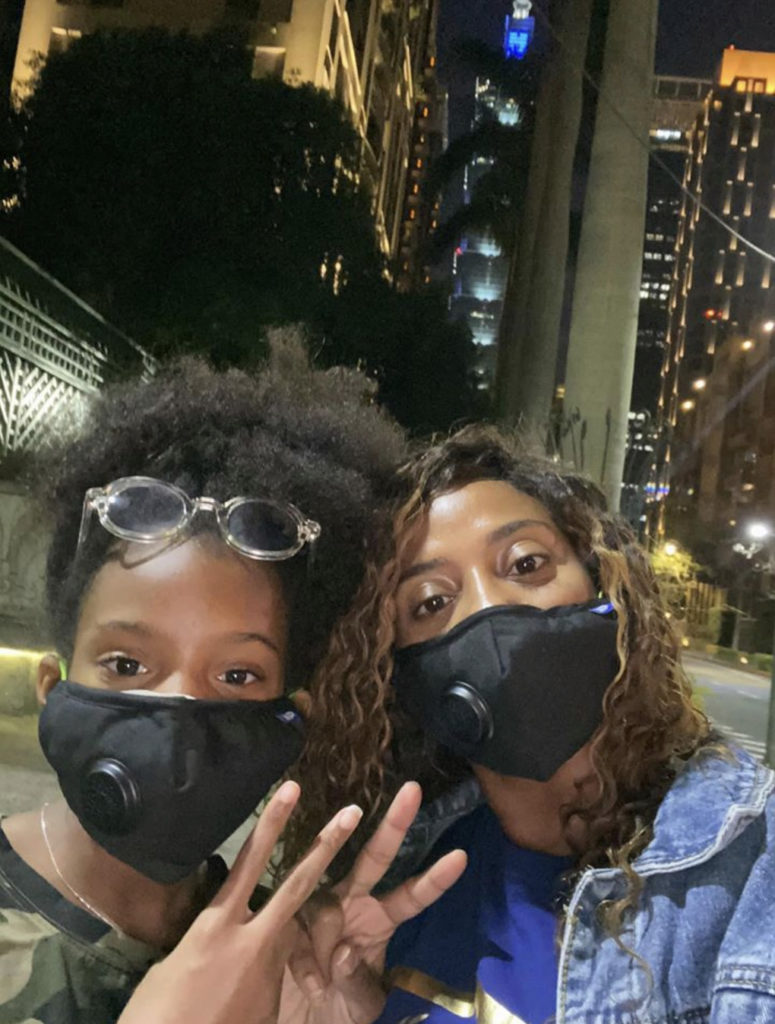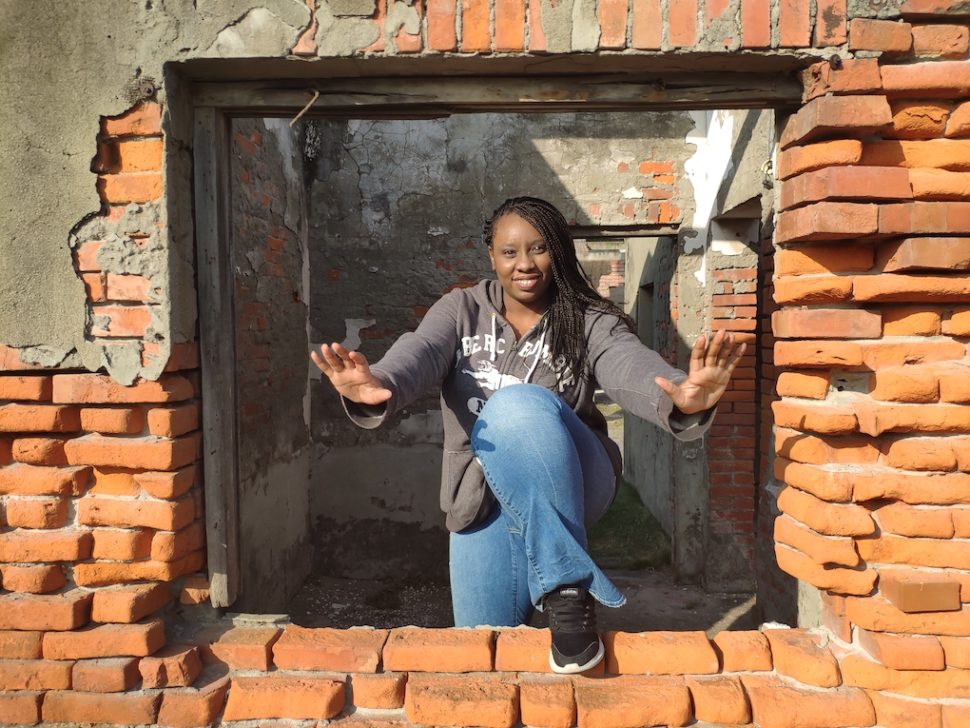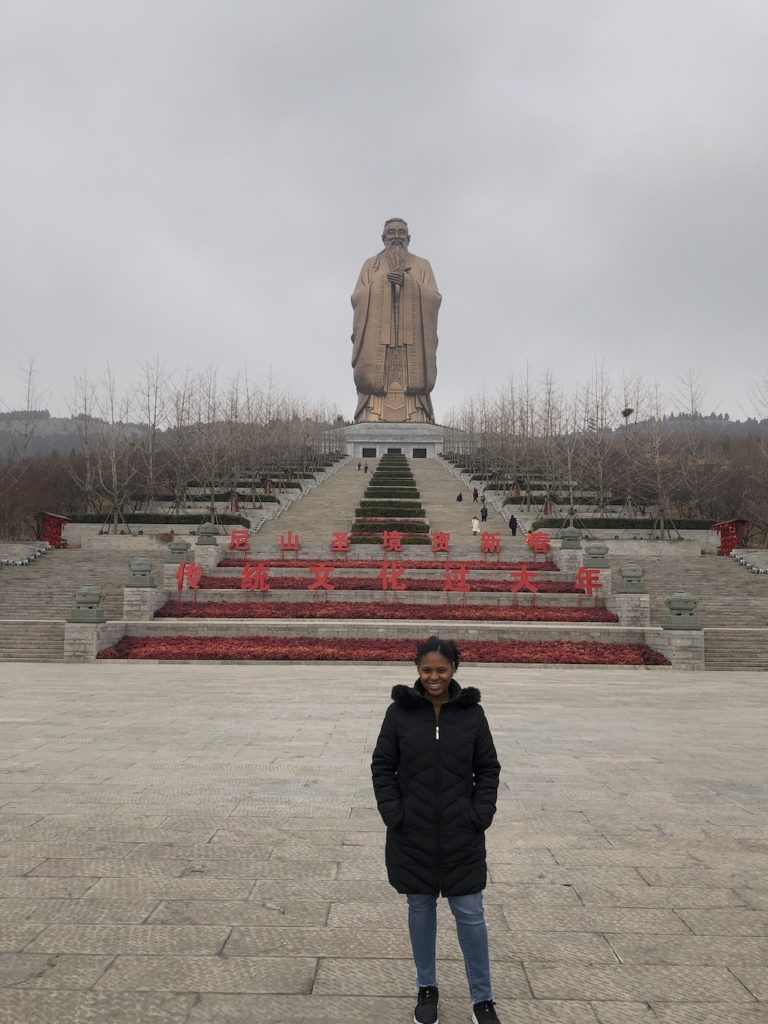Right now we are in the middle of a global pandemic. It is said that COVID-19 began in China and has slowly made its way around the world, most recently to the United States. It’s all we see and hear about on the news and on social media.
Travel Noire had the chance to speak with several expats that were living in Asian countries at the time of the initial outbreak. They shared their experiences and gave tips to those of us now in the thick of it.
Juanita Ingram– Taiwan
Instagram: @iamjuanitaingram
“We live in Taiwan and went through a 30-day shut down in late January through February. Taiwan only had 47 cases in total and 1 death. All others are recovered. 30-day shutdowns and social distancing work. My husband had to go to work every day during the shutdown and lead. I know it makes you feel anxious, fearful, worried, and like you are on the set of an outbreak movie– those are natural human reactions.

Look at the shutdown as a staycation. Hang out with your kids, binge watch movies, make your favorite recipes. 2 weeks or 30 days, it goes by quickly. Pray, meditate, stay in your homes, stay calm, and wash your hands. I know it is scary but there are better days. Life will resume. You will be able to travel and roam about again.”
Kimberly Allen- Taoyuan, Taiwan
“When the spread of the virus was first getting serious, I was a bit worried as Taoyuan airport is the biggest international airport for Taiwan which led me to believe the majority of cases would be found here in this city. While the first few cases were found here, we were safe as it was all detected rather swiftly by airport staff and didn’t spread. This was due to two major factors, China’s ban on nationals coming to Taiwan and Taiwan’s readiness to take on the virus. As of now, Taiwan has less than 60 cases island-wide, which is highly fortunate compared to neighboring countries.

There have been a few changes in our daily life. Now, most schools are starting an online database and ways to work from home for teachers. There are also hand sanitizer dispensers in front of most establishments, some big stations even have free vending machines dispensing sanitizers.
The biggest change is seeing all the people actually taking the time to wash their hands properly. (Shocker, right?) Here in Taiwan, we are lucky as we are able to continue with our daily lives without much restriction. Yet, if something does happen here, with all of the new regulations set in
place, I believe Taiwan will be prepared and equipped to deal with it.”
Morgan Bates- China
Instagram: @Mb_takeschina
“I was in China during the start of the coronavirus. I went there to teach in September in Shenyang. It didn’t get serious until the middle of January. I got alerts from the embassy but just ignored them, because I figured it was in another province. I was traveling around China to visit my students’ hometowns. Closer to Chinese New Year, temples and main attractions started to shut down. One of my students advised me to go back to the US quick. Once I got back to Shenyang, the Dean at my college advised me to go back to the States ASAP. So, I changed my ticket and left the next day. I was originally supposed to leave February 3 but left the 26th of January.

When I got back to the US, I felt relieved to be back home. But, in the back of my head, I knew the virus was going to spread here eventually. It was only a matter of time. With the current situation now, I feel like more can be done. If you really want the number of cases to decrease, take stricter measures. It’s also important people take this seriously. I was one of those people who didn’t take this matter seriously when I first heard about it in China, but now I do. I think more Americans shouldn’t take this lightly. We don’t want to end up like Italy or Spain.”
Related: The Black Expat: ‘Finding My Tribe While Living Abroad Was Key’
